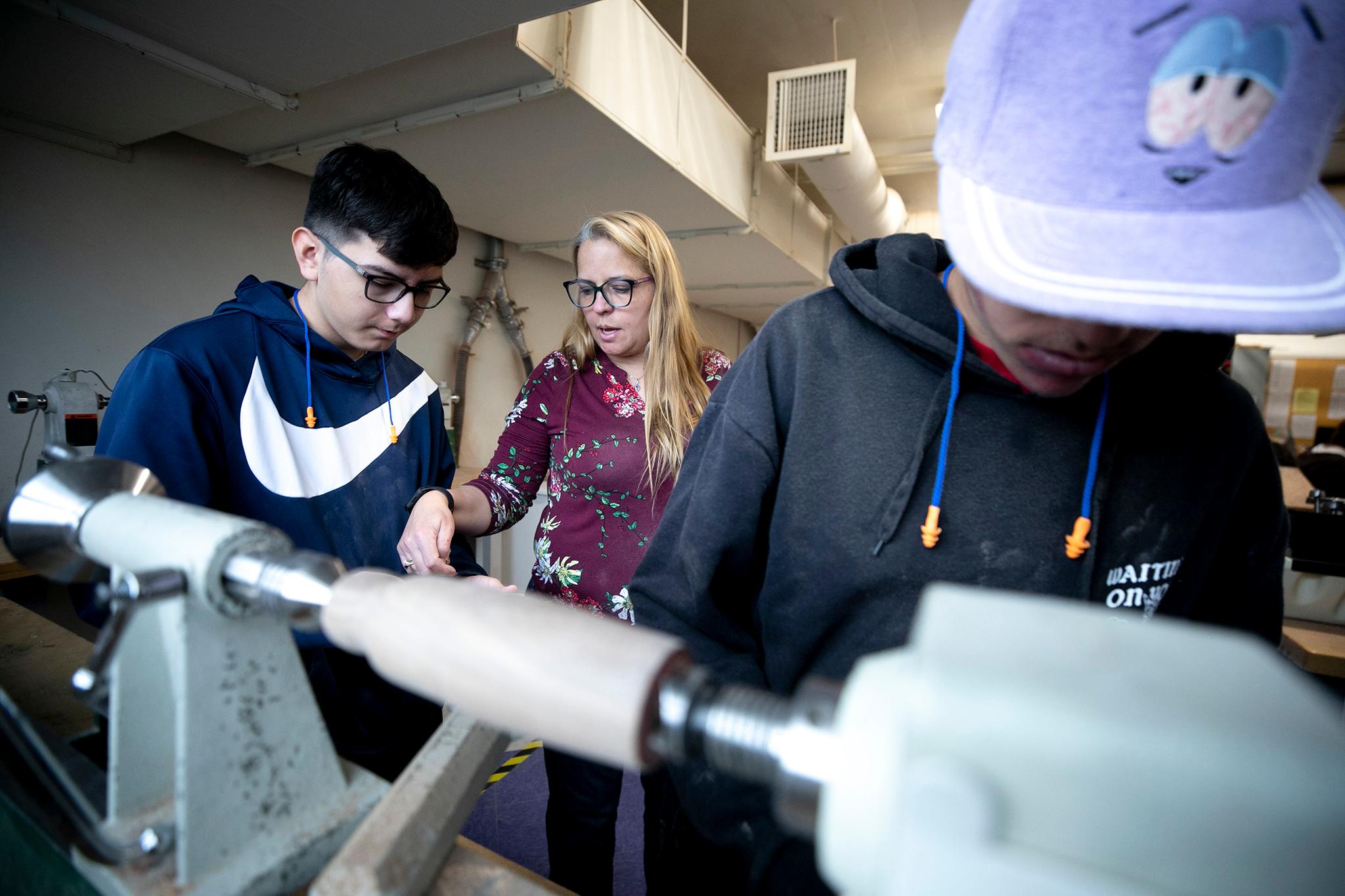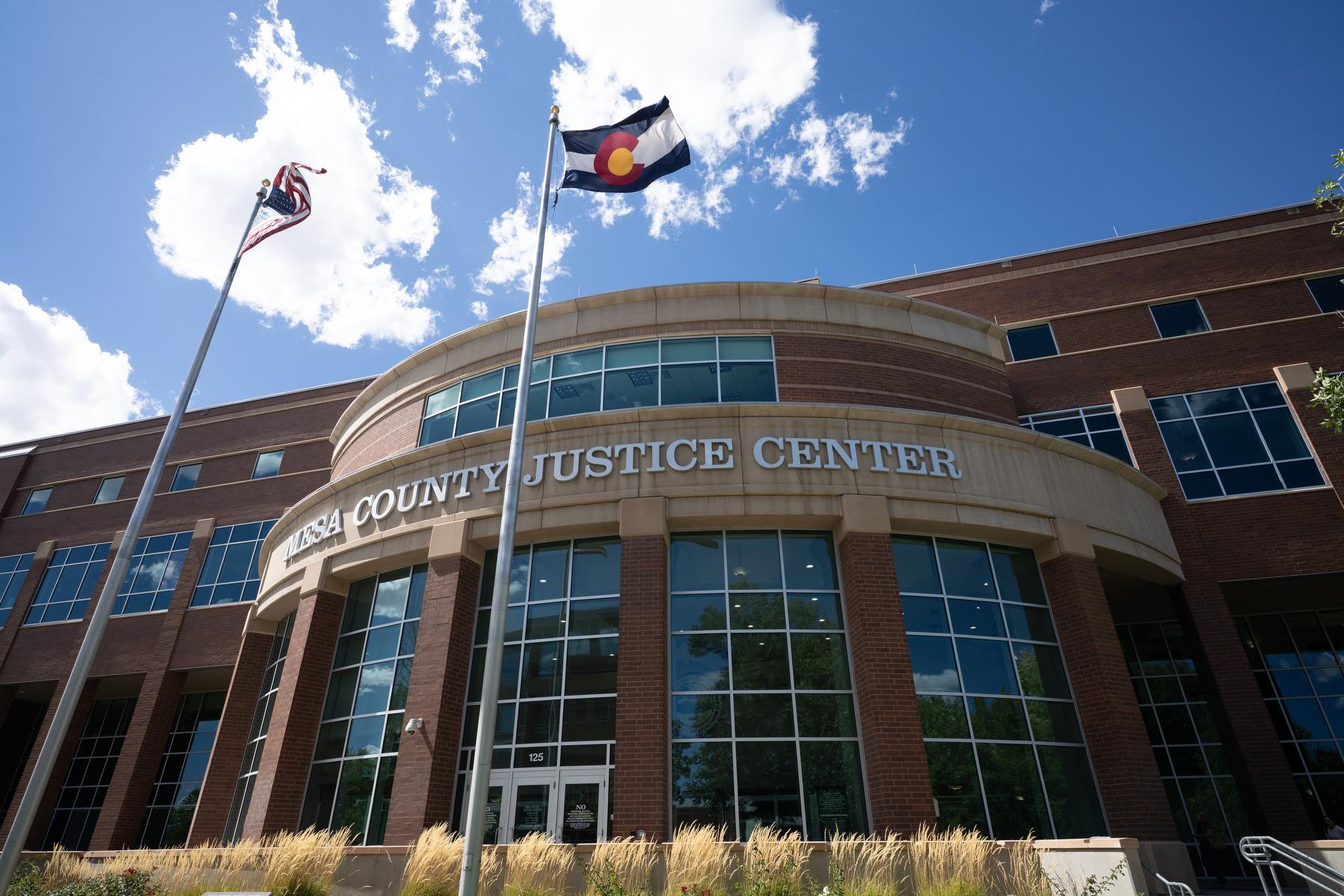
Colorado has such dire workforce shortages in early childhood education, education, firefighting, law enforcement, construction and forestry that if you want a job in those fields, the state will pay for your college education to get a job.
Gov. Jared Polis officially launched the program “Career Advance Colorado” on Tuesday. It will provide tuition, fees and course materials to students on those specific career training paths. The state already has a similar program Career Forward that provides free training for jobs in health care like certified nursing assistant, dental assistant, pharmacy technician, medical billing and coding and other health-related fields.
“We’re excited to save Coloradans money and train people for good-paying jobs by offering free community college education for in-demand positions at the state’s 19 community and technical colleges,” Polis said.
Most of those fields pay more — some significantly more — than unskilled jobs, and officials say one big advantage would be graduating work-ready with little or no debt.
The goal of the program is to help fill significant shortages in certain areas of the state’s economy. The state currently has two job openings for every available worker. Colorado sees 3,700 openings for elementary and secondary educators every year. Construction jobs are also projected to increase by 20 percent over the next decade.
Colleges will target everyone from newly graduated high school students to people who’ve been in the workforce and are looking for a career change. Students who’ve “stopped out” of college, or have some college but no degree, are another target.
What institutions got money, and who's eligible
The program came out of legislation this year that dedicated $39 million to the community college system, area district colleges, technical colleges and Colorado Mesa University. Another $5 million will go to the Department of Higher Education to set up two new short-term degree nursing programs at community and technical colleges. Colorado has 4,000 job openings for registered nurses every year.
Starting in August, students may enroll in year-long certificate programs or two-year associate’s degree programs. First, prospective students must apply for federal and/or state financial aid. You don’t need transcripts, essays, letters of recommendation, or fees for community and technical colleges.
Let’s say a student gets a partial federal Pell Grant of $2,500, and the cost of attendance of the program is $4,000, the state will pay the difference. If a student isn’t eligible for a Pell Grant, the state program would pay their entire tuition and fees.
'Remarkable opportunity'
One of the community colleges that hopes to benefit is Pikes Peak State College in Colorado Springs. The college has programs in construction, law enforcement, fire science and early childhood education.
“I think it's a pretty remarkable opportunity right now for students to attend Pikes Peak State College in these fields and be assured that their cost of attendance is going to be fully covered,” said president Lance Bolton, noting that even the uniforms for those in the law enforcement program will be covered. “That's something that's really never been on the table or offered to students.”
He said most of the programs have one-year certificates or a student can choose to enroll in a zero-cost two-year associate’s degree.
“You can get a certificate in one semester in brick masonry, or you can get an associate degree in construction. That covers a whole range of things, including masonry, electrician skills, plumbing skills, framing skills, blueprint skills — the whole nine yards of construction over a course of two years.”
Where the shortages are
One of the biggest shortage areas is early childhood educators, especially as Colorado gears up to launch universal preschool in a month, he said. Bolton has also met with Colorado Springs police and fire chiefs who told him about “significant shortages” in Colorado Springs.
Police and fire science programs used to have strong enrollment. But those decreased after the pandemic.
State officials hope programs lead to economic self-sufficiency for students. Starting salary for a fully trained Colorado Springs firefighter is $66,708. Once the city’s police recruits graduate from required training, they’re promoted to a rank earning about $69,000 a year.
Pikes Peak participated in the state’s free health care training program and saw a significant increase in enrollment.
“We really hope that’s the case for the coming year,” he said.
Students can later go on to get four-year degrees in some of the fields. For example, Pikes Peak State College offers a four-year degree in early childhood education, emergency management, targeting firefighters and police officers.
Community colleges plan to target students in social media campaigns and other media.









